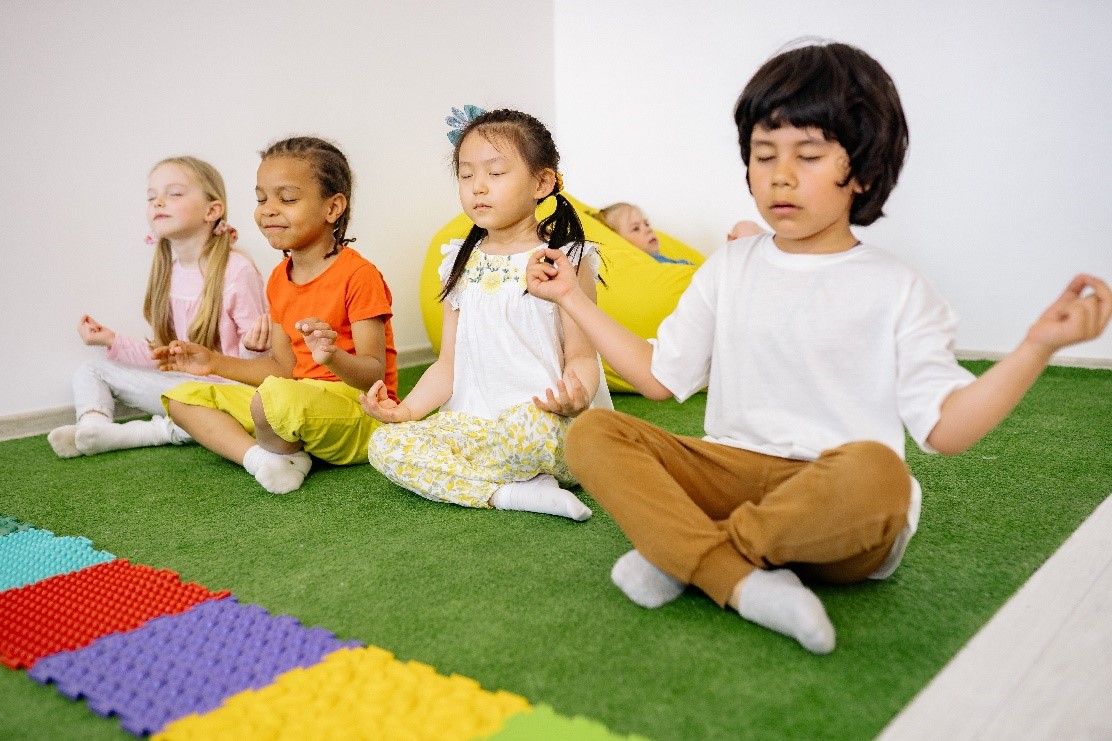Mindful Emotions: Practicing Self-Awareness and Emotional Regulation for Kids
Discover the transformative power of “Mindful Emotions: Practicing Self-Awareness and Emotional Regulation for Kids” with our insightful blog. As parents and caregivers, helping children develop self-awareness and emotional regulation skills is essential for their overall well-being and social development. In this blog, we delve into practical strategies and expert advice on fostering mindfulness in children, equipping them with the tools to navigate their emotions with confidence.
From teaching mindfulness exercises to encouraging open communication about feelings, this guide offers valuable insights to nurture emotional intelligence in children. By promoting self-awareness, children can identify and express their emotions effectively, fostering healthier relationships and improved emotional resilience. As we explore the power of mindfulness, parents will learn how to create a supportive and nurturing environment that encourages children to embrace their emotions and develop positive coping mechanisms.
Emotionally Empowered: 5 Transformative Benefits of Mindful Emotions for Kids
As parents and caregivers, we recognize the importance of nurturing our children’s emotional intelligence, providing them with essential tools to navigate life’s ups and downs. Mindful Emotions approach to help children develop self-awareness, emotional regulation, and resilience. By teaching children to acknowledge and understand their emotions, we empower them to respond to challenges with grace and empathy. In this blog, we explore the transformative benefits of mindfulness in children, guiding them toward emotional well-being and social harmony.
1. Enhanced Self-Awareness
Mindfulness practices encourage children to recognize and understand their feelings without judgment. By fostering self-awareness, children develop a deeper understanding of their emotions, thoughts, and behaviors, paving the way for better self-expression and emotional intelligence.
Enhanced self-awareness is a cornerstone of Mindful Emotions for kids, empowering them to explore and understand their internal world. Through mindfulness practices, children learn to observe their emotions, thoughts, and bodily sensations without judgment. By cultivating this non-judgmental awareness, children gain insight into the root causes of their emotions, allowing them to respond to situations with greater clarity and emotional intelligence.
As they become more attuned to their feelings, children develop a deeper understanding of themselves and their reactions, enabling them to communicate their emotions more effectively to others.
2. Improved Emotional Regulation
Mindfulness equips children with essential tools to manage their emotions effectively. By acknowledging their feelings without becoming overwhelmed, children can respond thoughtfully to challenging situations and develop healthy coping mechanisms that promote emotional regulation.
With improved emotional regulation, children gain greater control over their responses to challenging situations and stressors. Mindfulness practices, such as deep breathing exercises and guided meditations, provide children with tools to find inner calm and relaxation, reducing the intensity of emotional reactions.
As they become more attuned to their emotions, children can navigate through difficult emotions with grace and poise, empowering them to approach daily challenges with a sense of composure and clarity. By mastering emotional regulation, children build a strong foundation for managing their emotions in a healthy and constructive way, setting the stage for a more balanced and emotionally resilient future.
3. Reduced Stress and Anxiety
Mindfulness practices, such as deep breathing exercises and guided meditations, can help children calm their minds and bodies. This sense of inner peace and relaxation reduces stress and anxiety, enabling children to approach daily challenges with a sense of calm and clarity.
Incorporating Mindful Emotions in a child’s daily routine can significantly reduce stress and anxiety. Mindfulness practices, such as deep breathing exercises and guided meditations, help children develop a sense of inner peace and relaxation. By encouraging them to focus on the present moment and acknowledge their emotions without judgment, these practices enable children to become more resilient in the face of stressors.
This newfound emotional regulation reduces anxiety, allowing children to approach challenging situations with a calmer and clearer mindset. By fostering a mindful approach to emotions, parents and caregivers provide children with invaluable tools to navigate the stresses of daily life and build a foundation of emotional well-being that will serve them throughout their lives.

4. Enhanced Empathy and Compassion
Mindful Emotions nurture a greater sense of empathy and compassion in children. By encouraging children to understand their emotions, they develop a deeper understanding of others’ feelings, enhancing their ability to connect with and support their peers.
Mindful Emotions also teach children the importance of active listening and being present for others during moments of joy or distress. By being emotionally present for their peers, children create a safe and nurturing environment where feelings are acknowledged and respected. This empathetic approach to interpersonal interactions enriches their relationships, fostering a sense of trust and deep understanding between children.
As children learn to view the world through the lens of empathy and compassion, they become active contributors to a more empathetic and harmonious society, making a positive impact on those around them.
5. Improved Focus and Concentration
Mindfulness practices promote mental clarity and focus. As children develop their mindfulness skills, they become better equipped to concentrate on tasks, leading to improved academic performance and a greater sense of accomplishment.
Improved focus and concentration are among the remarkable benefits that Mindful Emotions bring to kids. Mindfulness practices, such as guided meditation and deep breathing exercises, train children to be fully present in the moment, redirecting their attention away from distractions.
As children learn to tune into their breath and observe their thoughts without judgment, they cultivate mental clarity and the ability to sustain focus on the tasks at hand. This heightened focus not only improves academic performance but also empowers children to engage more meaningfully in various activities, whether it’s playing a musical instrument, reading a book, or participating in sports.
This ability to exercise self-control empowers children to stay on track with tasks, resist distractions, and overcome obstacles with patience and perseverance. As their capacity for concentration strengthens, children experience a sense of accomplishment and gain the confidence to take on challenges with focus and determination.
Conclusion
Mindful Emotions is a powerful and transformative approach to nurturing emotional intelligence and resilience in children. By practicing self-awareness and emotional regulation, children develop valuable life skills that positively impact their well-being and interactions with others. As parents and caregivers, we play a crucial role in guiding our children toward emotional well-being and social harmony.
Embrace the journey of Mindful Emotions with your child, and witness the incredible benefits it brings to their emotional growth and overall happiness. Let’s empower our children to embrace their emotions mindfully, setting them on a path toward a more compassionate, resilient, and emotionally balanced future.

